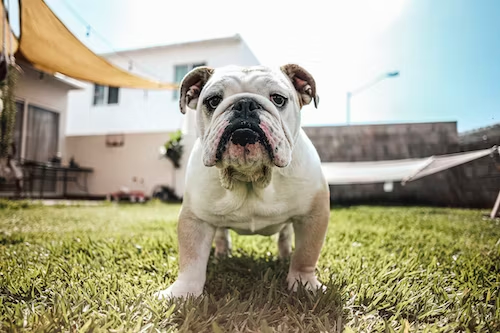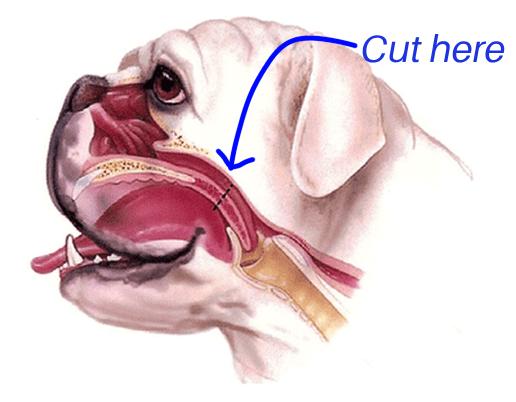Question: What’s the difference between a fancy bottle of wine and a Bulldog?
Answer: Nothing. They’re both really expensive and really, really need to breathe.

Just kidding, Bulldog fans. These chunks of love boast some of the biggest personalities in the animal kingdom.
Unfortunately, they also hold world titles for Most Medical Problems and Worst At Breathing.
Why Bulldogs can't breathe
Bulldogs, like Pugs, Boston Terriers, and several other popular breeds, are brachycephalic, which translates to “short-headed.”
Smooshed faces sure are cute, but, sadly, they make it difficult to do some of the more important things in life, like breathe.
This is such a common problem that we even have a special name for it: brachycephalic airway obstructive syndrome (BAOS)
The 5 components of brachycephalic airway obstructive syndrome (and what they mean in plain English)
Stenotic nares = narrow nostrils
Elongated soft palate = long soft tissue in top of mouth
Everted laryngeal saccules = tissue around vocal cords is pulled into windpipe
Tracheal hypoplasia = narrow windpipe
Nasopharyngeal turbinates = ridges of bone that extend beyond their normal position in the nose to block the airway

All of these anatomical abnormalities obstruct airflow, explaining why Bulldogs can't breathe very well. Clinical signs include constant snoring (while awake and asleep), a blue tongue, fainting, or worse (yeah, worse).
Correcting brachycephalic airway obstructive syndrome
BAOS can be partially corrected with surgery, usually by addressing the top two issues: stenotic nares and elongated soft palate.

If you are considering surgical correction, be sure to see a board-certified surgeon, since excessive swelling or poor post-operative management can result in complications. Young dogs tend to have the best results.

Yes, surgical correction can be expensive, but it also tends to make a dramatic improvement in a dog's ability to breathe, and therefore their overall quality of life.
This procedure is one of the many ways that Bulldogs help veterinarians pay off their mountains of student debt (don’t ask).
Bonus fact
The opposite of brachycephalic (short-headed) is dolichocephalic (long-headed). Think of a wiener. No, not that kind. A Dachshund. Be serious. This is science.

Extra bonus fact
The normal skull type is mesocephalic (middle-headed). No joke here. There's nothing funny about being average.

Commenti